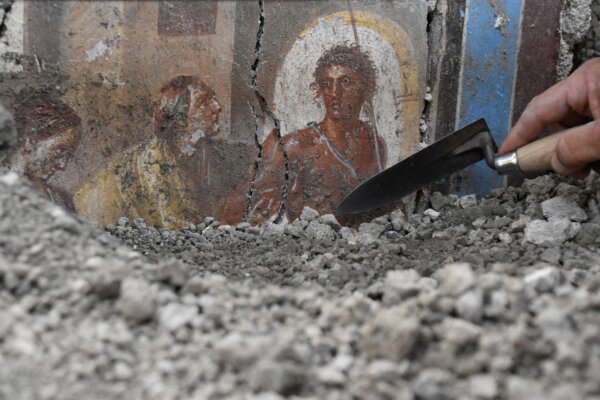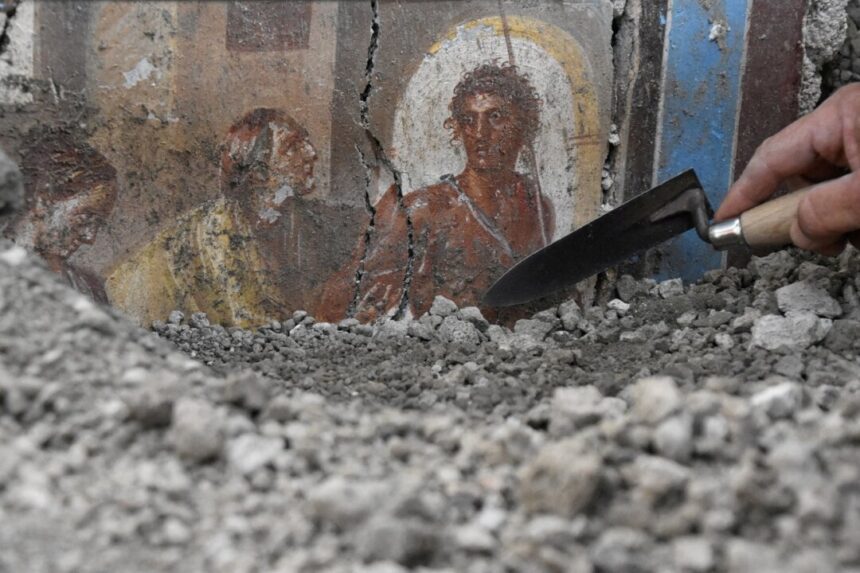
ROME—Archaeologists in the ancient Roman city of Pompeii have uncovered a small but intricately decorated house with well-preserved frescoes depicting mythological scenes, the Pompeii archaeological park announced on Thursday.
Named the House of Phaedra after the mythological queen of Athens featured in one of its paintings, this dwelling offers insights into the evolving architectural styles of the first century AD, according to the statement.
In contrast to the typical Roman atrium-centered layout of many excavated houses in Pompeii, this house stands out for its compact size and exquisite wall decorations.
Despite its modest dimensions, the house boasts remarkably high-quality frescoes, comparable to those found in larger, more lavish residences nearby within the archaeological site.
Pompeii, a bustling city in southern Italy, was buried under volcanic ash during the eruption of Mount Vesuvius in A.D. 79, preserving its inhabitants and structures for centuries.
In addition to the depiction of Phaedra and Hippolytus, the walls of the house display other mythological scenes, possibly featuring gods like Venus and Adonis, as well as intricate patterns and nature motifs.






